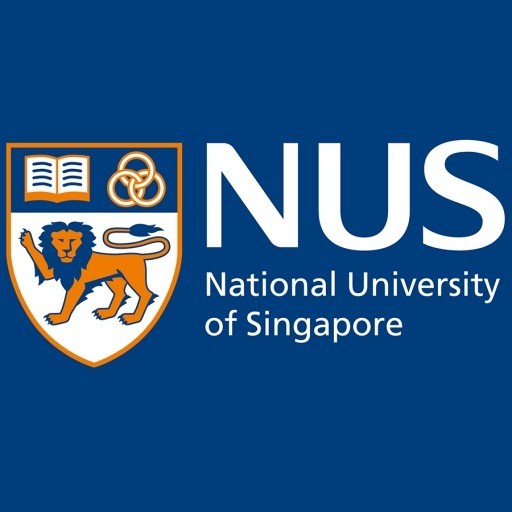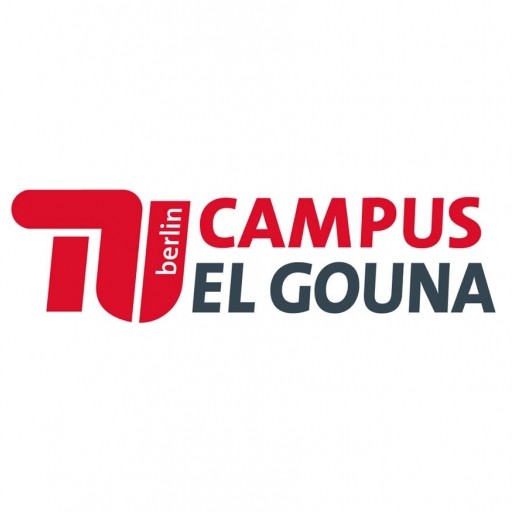Photos of university / #univofmaryland
The Bachelor of Science in Applied Mathematics and Statistics with Scientific Computation at the University of Maryland, College Park is a comprehensive program designed to equip students with the vital mathematical, statistical, and computational skills required to address complex real-world problems across various scientific and engineering disciplines. This interdisciplinary program emphasizes a strong foundation in mathematical theories, statistical methods, and computational techniques, fostering analytical thinking and problem-solving abilities necessary for innovative research and industry applications.
Students enrolled in this program will undertake a rigorous curriculum comprising core courses in calculus, linear algebra, differential equations, and advanced mathematics, complemented by specialized classes in probability theory, statistical inference, data analysis, and modeling. Additionally, a significant portion of the coursework focuses on scientific computation, including numerical analysis, programming in languages such as Python and MATLAB, and the use of modern computational tools and software to simulate, analyze, and interpret data. This integrated approach prepares graduates to excel in data-driven decision making, quantitative research, and technological development.
The program is tailored to meet the evolving demands of industries such as finance, technology, healthcare, research, and government agencies, where expertise in applied mathematics, statistical analysis, and computational methods is increasingly vital. Students will have opportunities for hands-on experience through research projects, internships, and collaboration with faculty involved in cutting-edge research areas like data science, machine learning, scientific simulations, and operational research.
Graduates of the Applied Mathematics and Statistics with Scientific Computation program will be well-equipped to pursue advanced studies or careers in data analysis, quantitative modeling, software development, and scientific research. The program aims to foster a versatile skill set that combines theoretical knowledge with practical application, ensuring graduates are prepared to make meaningful contributions in academia, industry, and beyond, in a rapidly advancing technological landscape.
The Applied Mathematics and Statistics, Scientific Computation program at the University of Maryland, College Park, is designed to provide students with a comprehensive education in the mathematical sciences, emphasizing both theoretical understanding and practical application. This interdisciplinary program equips students with the essential skills needed to analyze complex data, develop mathematical models, and utilize computational methods to solve real-world problems across various industries such as technology, engineering, economics, and health sciences.
Students enrolled in this program will explore a broad spectrum of coursework, including differential equations, algorithms, data analysis, probability, statistical inference, numerical methods, and computer programming. The curriculum is carefully structured to foster strong analytical thinking, problem-solving abilities, and proficiency in mathematical modeling. Students will also have opportunities to engage in research projects, internships, and collaborations with faculty and industry partners, enabling them to apply their knowledge in practical settings and prepare for diverse career paths or advanced graduate studies.
The program emphasizes hands-on learning with significant coursework in scientific computation, where students learn to develop and implement algorithms using modern programming languages such as Python, MATLAB, and R. Additionally, students gain an understanding of the theoretical underpinnings of statistical methods and mathematical theories, giving them a solid foundation to adapt to new technologies and methodologies as they evolve.
Graduates of the Applied Mathematics and Statistics, Scientific Computation program are well-prepared for careers in data science, quantitative analysis, software development, research, and academia. They are equipped with a versatile skill set that combines rigorous mathematical knowledge with modern computational techniques, making them highly competitive in today's data-driven economy. The program also serves as an excellent foundation for students considering advanced graduate studies in applied mathematics, statistics, computer science, or related fields.
Program Requirements for Applied Mathematics and Statistics, Scientific Computation at the University of Maryland, College Park
The Bachelor of Science in Applied Mathematics and Statistics with Scientific Computation at the University of Maryland, College Park requires students to complete a comprehensive curriculum designed to develop skills in mathematical modeling, statistical analysis, and computational techniques. Students must fulfill university general education requirements, including courses in writing, humanities, social sciences, and natural sciences, to ensure a well-rounded education. The major coursework emphasizes foundational mathematics, including differential equations, linear algebra, and calculus, alongside specialized courses in probability, statistics, numerical analysis, and scientific computing.
Students are required to complete core courses such as MATH 240 (Calculus III), MATH 241 (Calculus IV), MATH 246 (Linear Algebra), and MATH 340 (Differential Equations). The program also mandates coursework in applied mathematics topics, including MATH 410 (Mathematical Modeling) and MATH 440 (Numerical Analysis). For statistics, students must take STA 303 (Introduction to Probability Theory) and STA 410 (Statistical Methods). The scientific computation component involves courses like CMSC 351 (Algorithms), CMSC 388 (Foundations of Computing I), and CMSC 422 (Introduction to Numerical Analysis), fostering proficiency in programming and computational problem solving.
In addition to coursework, students are encouraged to participate in research projects, internships, or cooperative education programs to gain practical experience. A capstone project or seminar presentation is typically required to demonstrate mastery of core concepts. To graduate, students must earn a minimum cumulative GPA specified by the department, complete all required courses with a passing grade, and fulfill any additional departmental milestones. Advising throughout the program helps students tailor their course selections to career goals, whether in academia, industry, or government research.
Overall, the program aims to equip graduates with strong analytical, computational, and statistical skills, preparing them for diverse careers in science, engineering, data analysis, and applied mathematics.
The University of Maryland, College Park offers various financial aid options for students enrolled in the Applied Mathematics and Statistics, and Scientific Computation programs. Undergraduate students can apply for federal and state grants, such as the Pell Grant and Maryland State Grants, which provide need-based financial support. Additionally, the university offers merit-based scholarships for students demonstrating academic excellence, including the Bright Future Scholarships and departmental scholarships specific to the Department of Mathematics. Work-study programs enable students to gain part-time employment on or off-campus, helping to offset educational costs while gaining valuable experience.
Graduate students pursuing Master's or Ph.D. degrees in Applied Mathematics and related fields can access teaching and research assistantships, which cover tuition and provide a stipend in exchange for teaching duties or research support. Fellowships are also available through university funding programs, federal agencies, or external organizations, offering both financial support and recognition for academic achievement. Moreover, students can explore external scholarship opportunities from professional associations such as the Society for Industrial and Applied Mathematics (SIAM) or the American Mathematical Society (AMS).
The university provides comprehensive financial advising services through the Office of Student Financial Aid. They assist students in navigating the application processes for various federal and state aid programs, as well as private scholarships and institutional funding options. Payment plans are available to help students manage tuition payments over the semester, and emergency aid funds are accessible for students facing unexpected financial hardships. International students are encouraged to seek additional funding through private scholarships, grants, or external funding agencies, as some federal aid options are limited to U.S. citizens and permanent residents.
Overall, the University of Maryland is committed to providing diverse financial resources to support students enrolled in scientific and mathematical programs, including Applied Mathematics and Statistics, and Scientific Computation, ensuring that financial barriers are minimized so students can focus on their academic and research pursuits.
The University of Maryland, College Park offers comprehensive academic programs in Applied Mathematics and Statistics, as well as Scientific Computation. These programs are designed to equip students with a solid foundation in mathematical theory, statistical methods, and computational techniques, which are essential in a wide range of scientific, engineering, and data-driven fields. The Applied Mathematics and Statistics program emphasizes both theoretical understanding and practical application, preparing students to tackle complex problems in industry, research, and academia. Students gain skills in modeling, analytical reasoning, data analysis, and algorithm development, suitable for careers in finance, technology, government, and scientific research.
The Scientific Computation program at the University of Maryland focuses on numerical methods, simulation, and computational algorithms that enable the solution of large-scale scientific problems through computer simulations. This interdisciplinary field combines principles from mathematics, computer science, and engineering to develop efficient and accurate computational models. Students learn programming, high-performance computing, and mathematical modeling techniques, making them well-prepared for careers in scientific research, software development, and advanced data analysis.
Both programs benefit from the university’s strong faculty expertise, state-of-the-art facilities, and active research environment. They often include opportunities for internships, research projects, and collaborations with industry partners, providing students with practical experience and professional networking opportunities. The curriculum is typically structured to include core courses, electives, and research components, culminating in a bachelor’s or master’s degree, depending on the program level.
Graduates of these programs are highly sought after in various sectors, including technology, healthcare, finance, government agencies, and academia. The university’s location near Washington, D.C., further enhances opportunities for internships and employment with federal agencies and research labs. Overall, the programs aim to produce versatile professionals who are capable of applying mathematical and computational skills to solve real-world problems, fostering scientific innovation and technological advancement.
Note: Some specific program details such as exact course offerings, admission requirements, and degree durations can be obtained directly from the University of Maryland’s official website or academic catalog.









